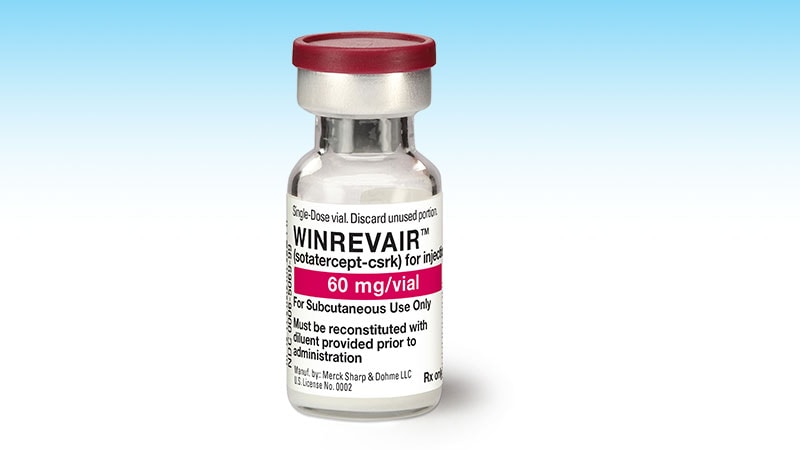Over 262,000 registered nurses (RNs) graduate yearly; 33 percent quit within the first 2 years.
"Retention is a huge issue in nursing," says Jennifer Mensik Kennedy, PhD, MBA, RN, NEA-BC, FAAN, president of the American Nurses Association (ANA). "COVID highlighted the issue, but these problems existed well before [the pandemic], and what we're seeing is a failure to truly do something about it."
There is a current shortage of 78,610 RNs, and the nursing shortage is expected to continue into the next decade. In fact, the latest data show that 900,000 nurses — almost one fifth of the total number of RNs in the United States — plan to leave the profession by 2027. Reversing the trend is essential.
Diagnosing the Problem
Nurses cite myriad reasons for quitting, including burnout, stressful work environments, poor staffing ratios, lack of leadership, and low pay and benefits topping their list.
Burnout: In Overworked, Stressed, and Sad: Medscape Nurse Practitioner Burnout & Depression Report 2023, 14% of nurses reported burnout so bad they may consider leaving the profession. Hope Farquharson, PhD, RN, MSN, national director of clinical practice at the University of Phoenix College of Nursing, points to 12-hour shifts, disrupted sleep schedules, and lack of work-life balance as contributors to burnout among nurses.
"Some are pretty good at adjusting," she says. "But it's stressful…because you're taking care of sick patients, and you have to also take care of your mental wellbeing."
Work environment: Nurses feel undervalued and overwhelmed at work, and healthcare environments are more stressful than ever. In the past year, 80% of nurses have experienced at least one type of workplace violence, including verbal or physical threats.
Robin Geiger, DNP, MSN, APRN, FNP-BC, NEA-BC, chief nursing officer at Ingenovis Health, which staffs top healthcare talent all over the country, still has scars from a patient who assaulted her when she worked as an intensive-care unit (ICU) nurse in a level one trauma center.
"Workplace violence has climbed tremendously," Geiger tells Medscape Medical News. "Nurses are afraid for their safety."
Inadequate staffing: In an ANA survey, 89% of nurses reported staffing shortages. The ratio of patients to nurses in the ER and ICU is 4:1, ie, double the recommended ratio. Worse, too few nurses to manage healthcare needs can contribute to poor patient outcomes and increased burnout and lead nurses to quit.
"Nurses are in these environments where there's not enough staff to take care of people sufficiently," says Kennedy. "You prioritize patient care knowing that your patients didn't get everything that they needed because you just simply didn't have the time."
Finding a Cure
Since staffing shortages are linked to higher rates of burnout and job dissatisfaction and lead nurses to quit, results such as more medical errors and lower patient satisfaction are more common. Addressing nurse turnover is essential, and efforts are being made to address the high number of nurses leaving the profession.
Legislation: The Safety from Violence for Healthcare Employees (SAVE) Act was introduced in the US House of Representatives in 2024 to mandate federal protections for healthcare workers who are victims of violence and intimidation in the workplace. Geiger calls it "a good starting point," adding, "We're all advocating and working together to get the SAVE Act and other HR bills either initiated or passed."
Legislation was also introduced to prevent hospitals and health systems from requiring nurses to work mandatory overtime to compensate for staff shortages. The Nurse Overtime and Patient Safety Act, introduced in 2024, was designed to improve working conditions and prioritize patient safety.
Residencies and mentorship: Programs that help new nurses transition into the profession have been shown to increase retention rates. Farquharson believes that efforts to bridge the gap between nursing school and healthcare settings can help new nurses feel more supported and keep them from feeling "so overwhelmed that they burn out."
"One of the reasons for continued high turnover is that the hospitals and organizations have unreal expectations that the schools of nursing need to create 'a plug-and-play nurse,'" Kennedy adds. "[They need to be] onboarding them, providing the mentorship that they need, providing an environment for them to learn safely, and easing their way into practice."
Improved work conditions: In addition to addressing workplace violence, healthcare organizations should be creating positive work environments to prevent nurses from quitting. The ANA advocates for environments that include teamwork and collaboration, open communication, career development, work-life balance, and recognition and rewards. Offering shorter work weeks and maintaining regular shifts without rotations could also help boost retention.
Resources for self-care: Nurses are expected to provide outstanding patient care while navigating loss, stress, fatigue, grief, and other workplace challenges.
"Nurses are so resilient," Geiger says. "We deal with loss and challenges at the bedside every day…and we have to go right back to work, regardless of what just happened an hour ago."
Research shows that exercise, participation in support groups, proper sleep, practicing mindfulness, and cognitive behavior therapy were all effective in improving quality of life among nurses.
Farquharson has seen an increased number of healthcare organizations devoting resources to self-care initiatives for nurses, noting, "Facilities are trying to start being proactive in helping their nurses so that they can retain them."
But the onus remains on governments, professional associations, nursing schools, and healthcare organizations to address the high number of nurses leaving the profession and ensure that nurses feel valued, supported, and safe in their jobs; it also requires support from the C-suite and hospital boards of directors, Kennedy said.
"[The nursing shortage] has been a problem for decades," she adds. "We know what needs to be done. Let's stop this."
Jodi Helmer is a freelance journalist who writes about health and wellness for Fortune, AARP, WebMD, Fitbit, and GE Health.

.webp) 3 days ago
5
3 days ago
5





























 English (US)
English (US)